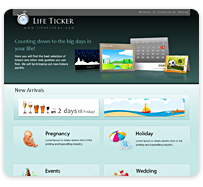Why PHP?
PHP is Cross-Platformed. Using the same code base, PHP can be compiled and built on about 25 platforms, including most UNIXs, Windows (95/98/NT/2000) and Macs.
PHP is similar to C. So anyone who has experience with a C-style language will soon understand PHP. In C-style languages we can also include Javascript and Java. In fact, much of PHP's functionality is provided by wrappers around the underlying system calls so C programmers will immediately feel at home.
PHP is extendible. PHP consists of the core parsing engine (written by Zend), a set of core code modules and then a set of code extensions. This allows programmers two ways of extending PHP to do some special processing, either by writing an extension module and compiling it into the executable, or by creating an executable that can be loaded using PHP's dynamic loading mechanism.
PHP currently will load into Apache, IIS, AOL Server, Roxen and THTTPD. Alternatively, it can be run as a CGI module.
PHP currently will work with MySQL, MS SQL, Oracle, Informix, PostgreSQL and many others. These are binary level interfaces, and ODBC is also provided for those situations where the database is not supported.
PHP is Open Source. In purely practical terms, it means that you are not dependent on a manufacturer to fix things that don't work, nor are you forced to pay for upgrades every year to get a working version.
As an open source product, PHP is well supported by a talented production team and a committed user community and also new contributions are also added from the Development Community other than PHP Developers, Zend Engine Developers, worldwide serving to the Web Development. Furthermore, PHP can be run on all the major operating systems with most servers.
PEAR. The PHP Extension and Add-on Repository. Similar to the CPAN network for Perl, although still in its infancy, the idea of PEAR is to provide a set of PHP scripts that would be installed by default with the PHP installation.
Well-maintained open source projects offer users additional benefits. You benefit from an accessible and committed community who offer a wealth of experience in the subject, as fast and as cheap as possible. Chances are that any problem you encounter in your coding can be answered swiftly and easily with a little research. If that fails, a question sent to a mailing list or forum can have an intelligent, authoritative response. You also can be sure that bugs will be addressed as they are found, and that new features will be made available as the need is defined. You will not have to wait for the next commercial release before taking advantage of improvements, and there is no hidden interest in a particular server product or operating system. You are free to make choices that suit your needs or those of your clients and incorporate whatever components you want.

















